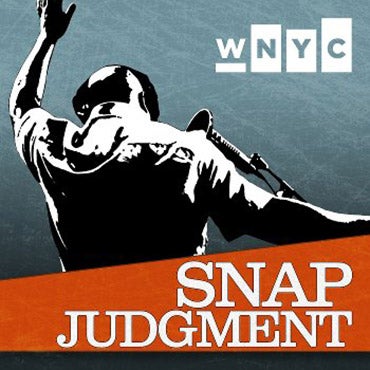Cop misconduct hearing aired racial divide
Anyone who doubts that things remain tense between the Philadelphia police and the city’s African-American community should have been in City Council chambers this week.
Nearly two-dozen city residents, most African-Americans, accepted Council’s invitation to air their grievances about the Philadelphia Police Department during a marathon City Council hearing on officer misconduct.
The six-plus hours of testimony were moderated by Councilmembers Donna Reed Miller and Curtis Jones Jr., whose districts cover most of Northwest Philadelphia.
“The only way to reprimand and remove officers who act inappropriately is with help from the community,” said Councilwoman Miller, who along with Jones faces re-election in 2011.
Police Commissioner Charles Ramsey listened quietly to the litany of complaints throughout the day. When he got the chance to speak early on, he conceded that police conduct falters too often for his taste, and explained steps he’s taking to improve recruitment and training.
Many of the witnesses talked about the alienation and mistrust they feel about the police who patrol their neighborhoods. There were numerous accounts, mostly from members of the African-American community, of unchecked police brutality, officer intimidation and poor or non-existent communication following a complaint.
Praying for justice
Pastor Brian Jenkins, who leads the Chosen 300 Outreach and Worship Center, said 6th District officers barged into his church during prayer on two separate occasions.
In October 2008, six officers stormed into the Spring Garden Street locale looking for a suspected criminal. And less than a year later, in July 2009, two officers interrupted a Sunday morning prayer service to look for a pickpocket artist who had struck on Arch Street.
Jenkins said he told the officers at the time of that incident that a city ordinance prohibited them from entering the church without having just cause or clearance from one of their supervisors.
“He decided to go beyond me. I then stopped the officer and was told that if I touched him again he would arrest [me],” said Jenkins.
Following those incidents, Jenkins said he filed a formal complaint with the 6th District, as well as with the Mayor’s Office and the Police Commissioner’s Office. To date, he said, he has not received a response.
“It takes 180 days for a criminal to be prosecuted,” said Jenkins. “However, when we file a complaint about the police department, a year and half has gone by and yet still no answer.”
Cops looking for payback?
North Philadelphia resident Christine Harrity said the department lacks accountability.
On Sept. 30 in 2008, Harrity lent a neighbor her pink motor scooter so that he could attend a court date in Center City. On his way home, she said, several police officers stopped and brutally beat him with their batons until other officers arrived and peeled them away.
The offending officers, according to Harrity’s testimony, had been searching for a stolen Harley Davidson motorcycle and that the wrong license plate number was called in.
Harrity said when she complained about the incident to the 22nd District, they told her the officers were likely overwhelmed with grief in the wake of Sgt. Patrick McDonald’s murder earlier that week and that they would straighten things out.
But instead, said Harrity, police arrested her neighbor for assaulting police and sent him to a maximum-security prison.
“Even though seven witnesses testified that the police beat him for no reason,” said Harrity.
“Internal Affairs is a joke,” she added.
Did he have to die?
Pamela Goode said the department does a poor job of rooting out problem officers.
Their failure to do so, said Goode, cost her, her son’s life.
Nearly two years ago, 24-year old Timothy “Tee” Goode, Councilman Wilson Goode’s nephew, was gunned down in Germantown while fleeing from Officer Anthony Avery from the 39th District.
Police reports at the time alleged that Goode had pointed a gun at the narcotics officer and that the two shots were fired in self-defense.
“Whatever it was,” said Goode. “It didn’t justify shooting him in the back. My heart will never be the same.”
With her husband at her side, Goode testified that Avery had a history of incidents with the public and that he shouldn’t have been on the streets that night.
“I honestly believe that if he was taken off the force for doing such a disservice behind the badge, maybe my son would be alive right now,” said Goode.
Watching over cops
Officials with the Philadelphia Police Department acknowledged that officer misconduct has been a recurring problem and said they are working on mending the relationship between the African-American community in particular and the city’s police force.
As of Nov. 30, there have been 725 complaints filed this year against police. That’s up from the 697 for all of 2009, according to Ramsey.
“I think we can do better than we’re doing right now,” said Ramsey.
Ramsey said the department has recently added 38 new staff members to the Internal Affairs Bureau so that complaints against officers can be processed more quickly and efficiently.
The department is also looking into a number of reforms directed at recruitment to weed out potential bad apples before they are given a badge. These include raising the minimum age requirement from 19 to 21, requiring at least 60 college credits or military experience, and three years of driving experience.
Ramsey said he is also interested in running more thorough background checks on recruits and is considering reviving the use of polygraph tests.
Next step?
When Council members were asked about their next step, Miller and others were vague, saying that they will read over the day’s testimony and decide then what the next steps will be.
WHYY is your source for fact-based, in-depth journalism and information. As a nonprofit organization, we rely on financial support from readers like you. Please give today.




